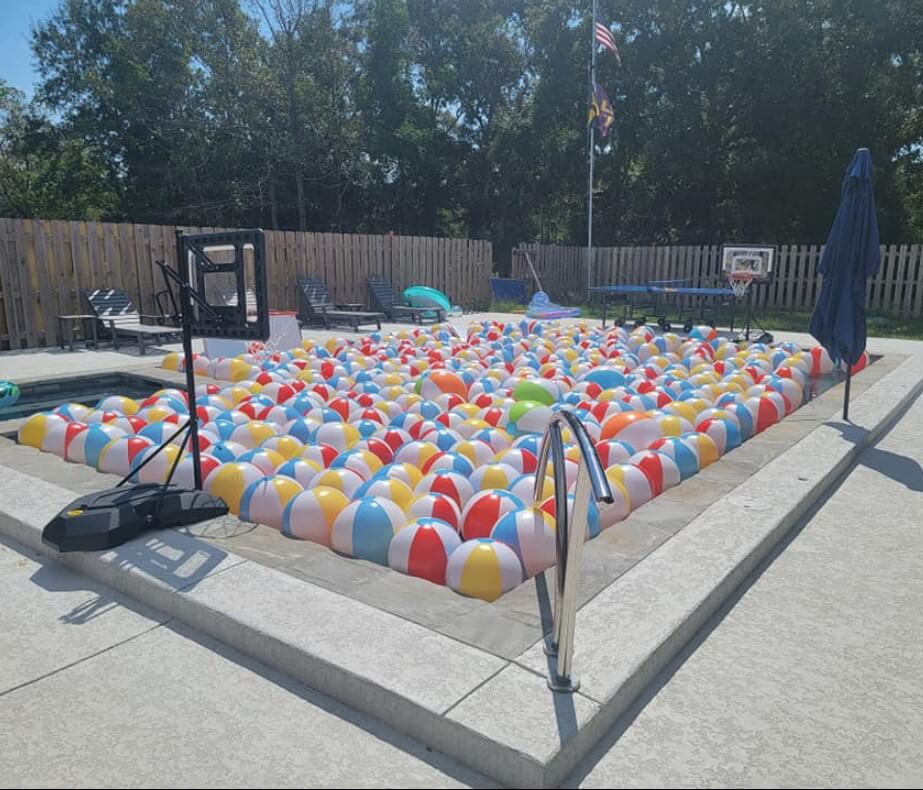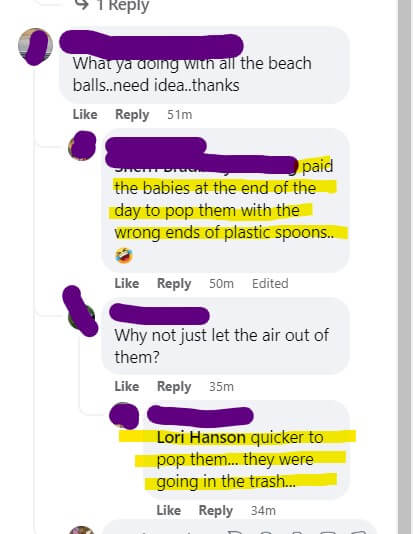A couple filled their pool with inflatable beach balls and then immediately tossed them in a landfill, sparking outrage on the r/Anticonsumption subreddit.
A photo of the beach balls in the pool prompted curiosity from commenters, who wondered how the couple would dispose of so many plastic balls. "We paid [our kids] to pop them with the wrong ends of plastic spoons," they responded, which irritated commenters. "Why not just let the air out of them?" someone wrote. The couple responded that it was faster just to pop the balls — they were going to be tossed anyway.


"This is just infuriating," a Redditor wrote in response. "They bought 500 plastic beach balls only to pop them and send them to the landfill?" another questioned.
Others agreed. "Sickening. Setting a great example for the kids too," one person commented. "Gross, and it's ugly looking anyway. What's. The. Point," another wrote.
Single-use plastics, such as these beach balls, are a massive hazard to both people and the environment. After plastic has served its intended purpose, it takes up to a thousand years to break down — and until then, it usually ends up in our oceans, our waterways, and our backyards.
These plastics are not just an eyesore. They pose threats on multiple levels, from changing soil chemistry to endangering animals. Frequently, they end up in the stomachs of wildlife — such as when a whale calf accidentally swallowed a deflated balloon and starved to death. And the scale is enormous: According to the Natural Resources Defense Council, 9.1 billion tons of plastics have been produced since the 1950s.
But all hope is not lost. Some corporations are working to reduce their plastic packaging, which could decrease some plastic production. Cleanup efforts — and even robots — are removing tons of waste every year from oceans and beaches. And the zero-waste goal is spreading to the travel industry as well, with some hotels looking to reduce or eliminate single-use plastics.
At the consumer level, making conscientious choices — whether it's switching to a powdered laundry detergent or skipping single-use plastic bottles — can greatly reduce individual impact.
"Junk is too d*** cheap these days," one Redditor commented. "If they had to pay a price reflecting the actual cost of a plastic ball, they would only buy one (or none) and take good care of it."
Join our free newsletter for easy tips to save more, waste less, and help yourself while helping the planet.









